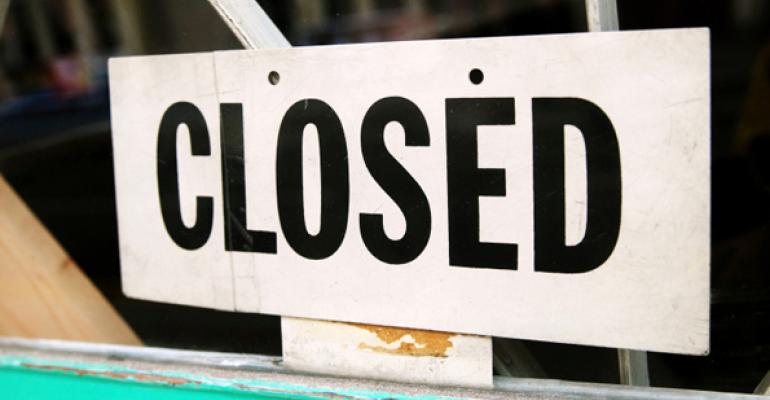No one wins when a restaurant needs to close unexpectedly. Yet many scenarios that result in closures can be managed with a proactive approach.
“Something little, like a clogged drain or a window crack, may seem insignificant at the time, but it can quickly escalate into a major issue,” says Ann Nickolas, senior director of foodservice for Cintas Corp. “Just as you would have a disaster preparedness plan in place, you should plan for other situations that could force you to close your restaurant’s doors until the situation is resolved.”
Cintas has identified five issues that force many restaurants to close:
1. The front door breaks. A broken gate or front door caused by an attempted break-in or malfunctioning hardware can be one of the quickest and easiest ways to keep customers from entering your restaurant. To keep doors open, have an emergency repair company on call that can fix the issue at any time of the day.
2. The drain clogs. Pipe blockage or a backed-up drain can create a big problem in a restaurant, causing water or sewage to drench the floors. Prevent clogs or buildup in drain lines by implementing a drain line maintenance program that flushes drains with “good” bacterial to keep lines clear.
3. A fire destroys the kitchen. The most recent data from the National Fire Prevention Association (NFPA) indicates restaurants experience an average of 7,640 fires a year, 57 percent of which were started by cooking equipment. Regularly cleaning and maintaining hood suppression and kitchen exhaust systems substantially limit the impact of a fire and help prevent property damage. A trained fire protection specialist can also notify you of other issues that exist at your restaurant, such as grease on the roof, faulty fan wiring or excess grease in the ductwork that could disrupt your operations and cost you money.
4. An insect or rodent infestation is found. Nothing can get people talking negatively about your restaurant more quickly than the presence of bugs or rodents. The mention of a rodent in an online review can prevent people from patronizing your restaurant and quickly alert local public health officials, resulting in a potential restaurant closure. Have a pest control specialist regularly inspect your restaurant to prevent an infestation and have a company on speed dial should an infestation occur.
5. Unsanitary conditions exist. Local health departments regularly inspect restaurants to ensure food is properly handled and stored. Inspectors also check to ensure the proper processes are in place to prevent cross contamination. By implementing chemical dispensing systems, foodservice operators can help ensure cleaning chemicals are readily available and properly diluted. This will help encourage use, improve overall sanitation levels and limit the opportunity for a restaurant closure.





